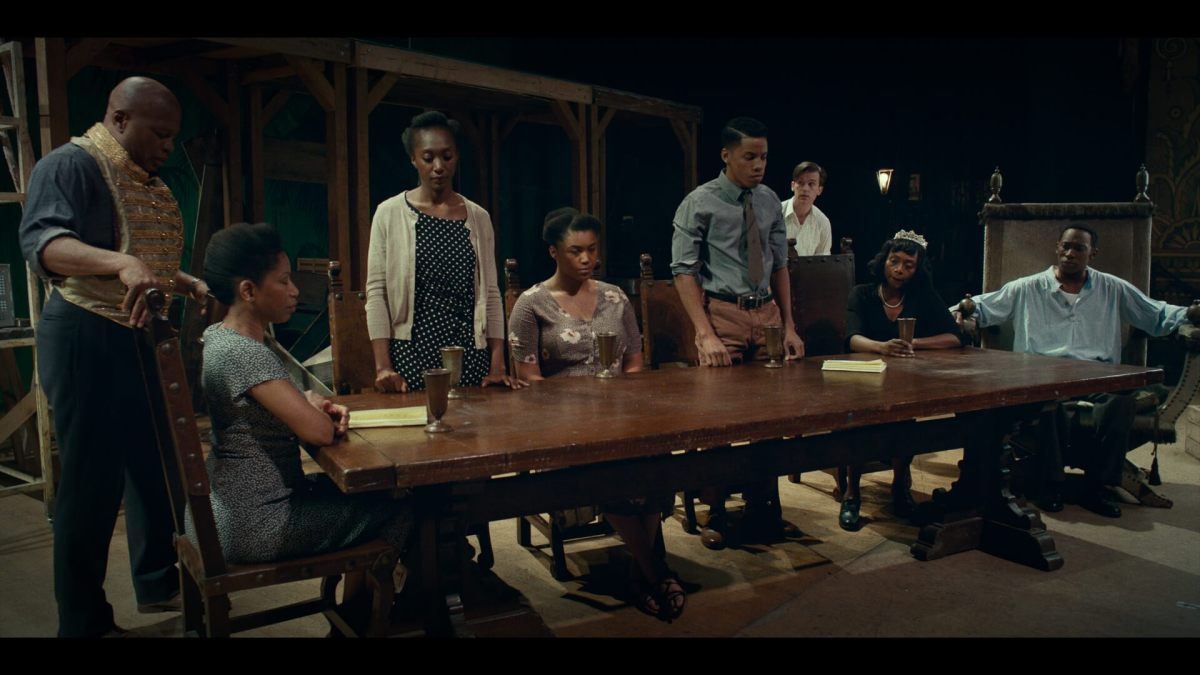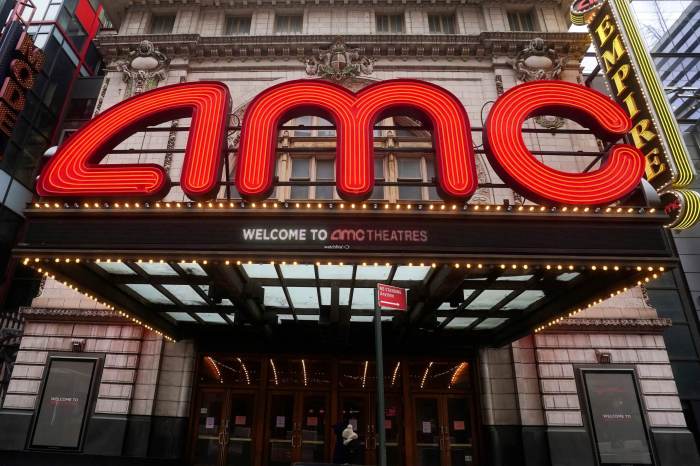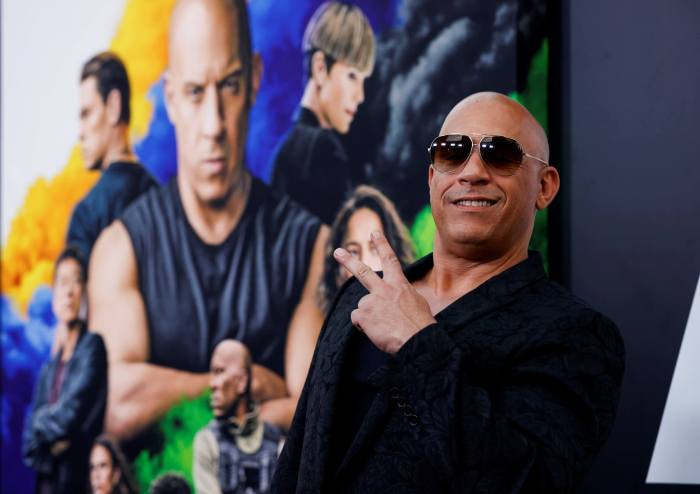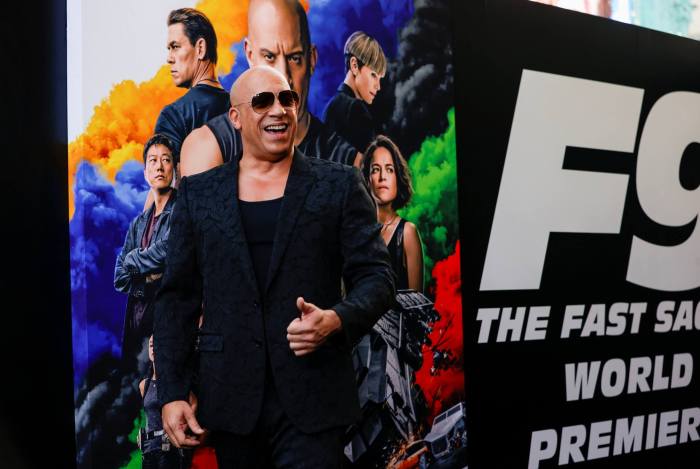Set in 1936 Harlem, when FDR’s New Deal was funding The Federal Theater Project’s Negro Unit, “Voodoo Macbeth” tells the story of directors Rose McClendon and John Houseman’s determination to create a production of Shakespeare’s “Macbeth” at the Lafayette Theater.
To direct their production, they ask the inexperienced 20-year-old Orson Wells, who reimagined the play into a Haitian story using a uniquely arranged cast. Based on true events, “Voodoo Macbeth” tells the story of an all-Black cast coming together to create something revolutionary and is now considered a landmark event in African-American theatrical history.
“It’s one of those moments in history which has sadly not been explored in film before and isn’t really talked about enough,” said Jason Phillips, one of the three producers on the film.
Phillips holds a Bachelor of Fine Arts degree in Film Production from the University of Southern California (USC) School of Cinematic Arts and has worked on projects for recognizable names such as Lionsgate and Amazon. Prior to this project, Phillips had not heard of “Voodoo Macbeth” and was excited to be a part of a team that was working to bring the story to a screen.
The film was shot in 25 days through a collaboration of 8 writers, 10 directors, 3 producers and a large ensemble cast and crew. The writers and directors are all students and many of the rest of the crew and people working on the film are USC alumni, working on the film in department head positions often for the first time.
With so many directors, a low budget and post-production efforts beginning near the start of the pandemic, the film had a unique creation process. On a single day of shooting, up to 8 directors worked consecutively, switching about every 45 minutes. In order to create a cohesive piece of work, directors had to be adaptive and collaborative.
“There was no room for one singular ego to trump over anybody and we really had to work together for it to actually end up working. That’s ultimately what the movie is about: every voice matters and to make a better project and better show, all the voices need to be heard, respected and valued,” said Phillips.
The process of filming looked a lot differently with 10 directors involved. In attempting to keep creative visions cohesive, each director shot their portion of the movie on their iPhone with friends and in their own houses. The whole movie was put together with these clips so that producers could blend directorial styles and make things more fluid. Before beginning filming, the three producers and each department head sat down with each director individually for an hour to assess their vision for their portion. Then they worked two 10-hour days to agree on plans as a team.
“I really think all of the actors, all the department heads, all the crew members were just so phenomenal in their own way and they brought such a great level of professionalism and commitment to the project that as a producer I felt very great about because [I was] in charge of bringing this group of people together. Without them we could not have made the movie we have, it would have been totally impossible. We just had the mix of the perfect storm,” Phillips said.
Each part of the process had to go smoothly in order to get the film put together and ready to screen in festivals and find a distributor, however, not everything went right all the time. In the movie, Orson Wells takes the curse of Macbeth seriously and so does Phillips.
“At one point we were shooting and all the power in the entire theater that we were shooting in went out. We were the only spot on the street where it went out, the rest of the block had no power outages and we could not get it back on for the life of us,” Phillips said.
Despite efforts by the crew, the power remained off for the entire day and filming was rescheduled for the following day.
Another hiccup in the release of the film was the pandemic. The first screening of the movie to friends and family happened in February 2020. After taking some downtime to adjust, producers remained vigilant and began submitting to festivals in the fall of 2020.
After that, they began traveling around the U.S. promoting the movie, trying to meet as many people at in-person screenings as possible.
“The industry was in such a weird state of flux at this point so I think we were all just trying to figure out: how is this going to be distributed? Are movie theaters still going to be around by the time we finish this pandemic? How long is this pandemic going to be lasting? There were just a lot of questions in the air,” Phillips said.
Sitting at Q&A’s at various film festivals proved to be another challenge, as everyone was wearing masks and it was hard to read the reactions of the audience. Adding to the efforts of getting the film made, being vulnerable to a masked audience ended up paying off.
At the Sedona International Film Festival Phillips met who would become the distributor of “Voodoo Macbeth” Arnie Holland, CEO of Lightyear Entertainment.
“It is extremely exciting to get this distribution and to have it actually being released feels amazing. It’s almost indescribable because so much work goes into it and then when you get to see it all together it’s kind of like: wow, we actually did shoot for 25 days and we did make this movie and that is my name up there. You feel an overwhelming sense of pride in that,” Phillips said.
The long journey is coming to an end Oct. 21, as “Voodoo Macbeth” is released to the world. In seeing this film, Phillips hopes that audiences go home and look up Rose McClendon and The Negro Theater Unit, as well as the cities the performed in and the other productions they put on. For Phillips, his research took him to the untold stories of LGBTQ+ history where he found productions and people he never knew existed.
“I think it’s so important for all of us to look back and see that there are so many stories from different groups that have been fully erased and not talked about. It’s those types of stories that are the most important to talk about now,” Phillips said.
Tickets to “Voodoo Macbeth” can be purchased from theaters around New York beginning Friday, Oct. 21.
Things to keep in mind during the movie:
- The movie changes directors about every ten minutes.
- All of the play sequences were shot in reverse. They started with the final set and then took it apart to get different stages of production and because there was no budget to build every individual stage.
- The directors did a Shakespeare class at the very beginning of the project to refresh on different ways to communicate with the actors and as a fun bonding experience.
- If you want to play a game you can count Jason Phillips as an extra in the movie, who like a lot of the crew members stepped in whenever they were low on extras.







































